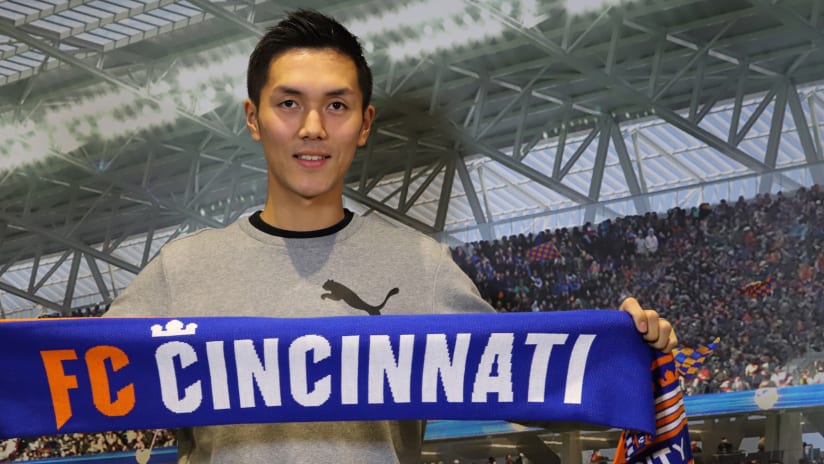If the 2019 season was about FC Cincinnati joining MLS, the 2020 season is about the Orange and Blue establishing themselves as a side that competes with – and wins against – the league’s top clubs.
That goal is evident in the team’s latest roster move: signing Yuya Kubo as a Designated Player from Belgian giants K.A.A. Gent.
Kubo is Cincinnati’s second-ever Designated Player after Fanendo Adi, but is the first under GM Gerard Nijkamp. If FCC are successful in 2020, expect the Japanese forward to play a big role.
Here’s why the move makes sense for both the player and club alike.
A good move for Kubo
Having just turned 26, the forward comes to a new league with new expectations. He arrives having played previously in top divisions in Japan, Belgium and Germany, as well as the Japan National Team and its youth national squads.
MLS provides a different challenge.
He’s the league’s first Japanese DP and will play a crucial role for FC Cincinnati: a club in desperate need of quality attacking players. Both of those realities mean added significance on his arrival.
In addition to playing in different leagues, he’s found success in multiple positions and can be an impactful player across FCC’s frontline. While he provides the possibility of being a No. 9, he can also serve as be creative winger who’s strong in possession and can create opportunities for teammates.
For a player with recent international caps numbering in the double digits, an impressive display in 2020 could easily see Kubo get back into international contention – another intriguing dynamic to his trans-Atlantic transfer.
A good move for FCC
Cincinnati scored a league-low 31 goals in 2019. While the club also conceded the most goals, Nijkamp and his staff addressed the need for a better backline by adding Tom Petterson, Saad Abdul-Salaam and Zico Bailey earlier this window, after adding Maikel van der Werff in the summer window.
Now, the focus shifts to the attack, and Kubo’s arrival offers a dynamic player who can play in any of the three forward positions in the club’s expected 4-3-3 formation.
Kubo’s signing fills a clear gap in the team’s roster. Before his arrival, Joseph-Claude Gyau and Kekuta Manneh were the only rostered wingers.
As for the No. 9 spot, Brandon Vazquez recently joined, in addition to Adi, Darren Mattocks and Rashawn Dally returning.
In short: Cincinnati added an established attacking player – and goal scorer – to a team needing goals. This is a major signing for the club, and now his positioning on the field will be one of the big questions entering the preseason.
Don’t think of Kubo as the missing piece. Consider him a piece of what FC Cincinnati were missing.




